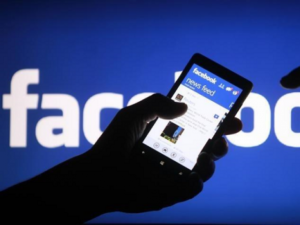“The global media environment is changing at a fast pace.”
These are just 10 words of an opinionated statement by Gethsemane Mwizabi in an article that was published by All Africa, an online news platform. Few as the words may be, they speak volumes when it comes to the current trends of global media.
It is common knowledge nowadays, that new media has become the one platform to find out latest stories in or hottest gossip around. However, in as much this is the case, does it mean that our good old traditional media has been forgotten?
Reflecting further on Mwizabi’s opinion, it is quite interesting to note how the world and people’s preferences have evolved when it comes to media usage.
Internet Live Stats, a statistics website, noted that in the 90s, people around the world depended on traditional media (TV, radio, newspapers and magazines) to get information.
But now, the situation has changed. For example, Live Stats revealed that in 1995, the world population of internet users was less than 1% but in 2014, the percentage increased to 46%. This clearly shows that two decades ago people were not more acquainted with the internet and that by now almost half the world’s populations is using it.
Looking at Zambia’s internet usage in particular, the country is equally embracing new media like the rest of the world. For instance, in 2016 the Zambia Information Communication and Technology Authority (ZICTA) released a report on access to Information and Communication Technology (ICT) by individuals and households that revealed that over six million Zambians were using the internet.
The report also revealed that 71% of individuals that own smartphones in Zambia use their devices to access Over The Top (OTT) applications such as WhatsApp, Facebook, Twitter, Viber and Skype.
To add on, the report also revealed that the percentage of households with two forms of traditional media, television and radio, had reduced marginally. The statistics for households owning a television set reduced from 35.5% in 2013 to 33% in 2015 while statistics for households owning a radio reduced from 52.7% to 44.9% in the same period.
Henceforth, it is evident to note that new media usage, aided with internet connectivity, has increased while traditional media usage has continued to decline in Zambia.
And the Zambian government acknowledges this fact as in 2018 Chief Government spokesperson Dora Siliya was quoted in one of the public newspapers, the Zambia Daily Mail, saying that the coming in of new media had disrupted traditional media as many Zambians follow it more than they follow public (traditional) media.
The reasons why new media has seemingly overtaken traditional media are numerous but its immediacy and accessibility on go perhaps can be cited as to why people prefer it over print or broadcast.
Then there’s an issue of convergence, which Ms. Siliya as well noted to have contributed to the disruption of traditional media. One can access a radio or television broadcast on the internet. They can also access online newspapers and magazines, leaving little use for them to refer back to an actual radio or television set.

Well, is traditional media going to survive the new media Onslaught?
Perhaps the answer can be positive when one looks at the perks of getting our information from the good old traditional media than from just any news website you find on the internet, which information source credibility becomes the issue.
In 2018, Ms. Lucy Lumbe of Zambia Daily Mail published an article in which she quoted her interviewee Scott Havens of Bloomberg Media Initiative Africa saying that most people were using social media as a platform to spread fake news.
“Zambia has had its own fair share of the increasing spread of fake news through social media,” read the article.
Ms. Lumbe went on in her article to cite a news story that was spread via social media alleging that Zambia National Broadcasting Corporation (ZNBC) had been taken over by China’s Top Star Communications. It is such incidences of fake news releases that gives new media a disadvantage over traditional media. Everyman’s wish is to receive accurate, truthful and factual information, the quality that new media fails to provide at times due to lack of verification process and structures that would do so.
The Media Institute of Southern Africa (MISA) Zambia also jumped on the issue urging people to be wary of the disadvantages of new media.
Speaking with the Lusaka Star, in the Institute’s view, for new media there are no laid down guidelines that prevent the spread of fake news.
According to MISA traditional media should still be everyone’s source of news in that they laid done procedures of processing information that include editorial guidelines and ethics.
The institute believes that before a story is transmitted in traditional media, it goes through several hands; from the reporter to the editor and then to the public, and that this process ensures balance and fairness in news stories.
For MISA the problem with several online news sources is that anyone can simply get their mobile phone, make up news and then post it without any third party verification.
In as much as new media usage has greatly gained prominence over traditional media usage, there is still a significant place that traditional media holds in our daily lives. And with this, White Hat, an international media outlet, contend that TV and radio are still alive and well, in one of its articles defending traditional media from the new media surge.
“This is because people trust what is familiar to them and TV and radio have been delivering (mostly) factual stories for decades now. People are more likely to trust a reporter on the traditional news media than a social media character reporting on a news item,” read part of the article.
Whether this was true for Zambia or not, MISA Zambia backed the sentiments above and explained further that even if people read stories on social media and other online platforms, they still go back to traditional media to clarify.

Without doubt traditional media is surviving the new media onslaught regardless of its magnitude. Each day traditional media draws back some of its users as a result of some shortcoming of the ever evolving new media.
Finding fake information quickly is finding no information at all, this need to be noted. Therefore, a balance in using either traditional or new media should be stricken as both these platforms can offer factual and fake news.
The goal should then should be to get truthful, fair, balanced and factual information regardless of the platform one is using to access information.

